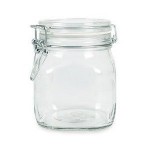by Catherine Haug
Do you buy commercial canned tomatoes and canned tomato products? If so, you might want to rethink that plan, or at minimum, seek a different brand, to avoid BPA.
Several health problems associated with the BPA (Bisphnol-A) have made the news in recent years. BPA is used not only in plastic water bottles, but also to line cans for canned foods.
- “BPA has been associated with cancer, insulin resistance, and birth defects. … What was most unexpected-and alarming-was that low-dose experiments produced worse effects [in lab animals] than high-dose.” (1)
- It is a known endocrine disrupter, meaning that it mimics hormones, or blocks hormone receptors, primarily affecting estrogen and thyroid hormones.
- And it has known neurological effects especially harmful for infants and toddlers whose brains are still developing. (2)
Tomatoes are especially problematic; they are quite acidic and readily leach the BPA from the lids and linings into the tomato product. Even Organic brands use BPA can & lid linings.
Back in 2007, one concerned homemaker contacted the companies that produced all the brands of canned foods she used, and found that only one, “Trader Joe’s, does not use epoxy liners containing BPA in its cans.” (1) But then, what DO they use to keep lead solder from leaching into the cans’ contents?
What’s a concerned homemaker to do?
One organic brand is going BPA-free
Beginning this year, Muir Glen (a subsidiary of General Food)) will stop using BPA to line its cans and will use a new product they believe does not pose health risks. But they will not label the new cans BPA-free. Instead, if you want to avoid BPA-line cans when you buy Muir Glen canned tomatoes, look for “Best if Used by 2013.”
From Foodaries: The Online Food Diary, Jan 4, 2011: General Mills Subsidiary Muir Glen Announces Organic Tomatoes In New BPA Free Cans, Muir Glen has released the following statement (3):
“One alternative has proven safe and viable in our processing of tomatoes – and Muir Glen has begun the transition to cans with liners that do not use BPA with this year’s tomato harvest. It is an approved non-epoxy alternative. Can coatings used by Muir Glen also comply fully with all applicable U.S. Food and Drug Administration requirements for safe use in food contact applications. The BPA free cans will have a Better If Used By code date year of 2013.”
Canning your own
Perhaps your best option is to can your own. Then you are totally in control not only of the ingredients used, but also the process and equipment. You can choose glass mason jars, but what about the lids?
Those familiar metal lids (used with rings) are coated with a BPA-containing epoxy. The new reuseable plastic lids claim to be BPA free (4), but what other toxic substances might they contain?
My choice would be to use Euro-style glass lids and rubber gaskets, that are clamped in place. (4). Photo, above right, from Amazon (6).
And remember that not all tomatoes are acidic enough for hot-bath canning, so be sure to test the pH of your tomatoes; it should be lower than pH 4.6. If not, you can “add 2 tablespoons of bottled lemon juice or 1/2 teaspoon of citric acid per quart of tomatoes. For pints, add 1 tablespoon bottled lemon juice or 1/4 teaspoon citric acid.” (7) This is also recommended for salsa, tho I prefer lacto-fermenting my salsa.
See Canning Tomatoes and Tomato Products from Colorado State Univ. Extension (7) for more great info on canning tomatoes.
See Is There Bisphenol A In Your Home Canning? for lots more on this subject. (5)
I’m skeptical of all plastics
I firmly believe that ALL synthetic plastics are toxic. I don’t even trust so-called “food grade plastic” and line such containers with paper before putting food into them.
It’s true that some plastics have not been reported to be toxic, but that could simply be because the manufacturer has hidden negative reports, or that researchers have not discovered in what way they might be toxic. Right now, most research in this regard has to do with endocrine disruption. But there are other ways substances can be toxic, and certainly the possibility of ways that are as yet unknown. After all, endocrine disruption was only discovered in the last 50 years. What will the next 50 years reveal?
Sources
- Organic Consumers Assoc.: Consumer Alert: Toxic Hormone-Disrupting Chemical BPA is Leaching from Food Can Liners
- Wikipedia on ‘Bisphenol A’ (en.wikipedia.org/wiki/Bisphenol_A)
- Foodaries.com: General Mills Subsidiary Muir Glen Announces Organic Tomatoes In New BPA Free Can Jan 4, 2011 (foodaries.com/2011/01/general-mills-subsidiary-muir-glen-announces-organic-tomatoes-in-new-bpa-free-cans/
- Lehman’s: Reusable Canning Jar Lids and Small Mouth European Glass Canning/Juice Jar (www.lehmans.com)
- Is There Bisphenol A In Your Home Canning? (www.treehugger.com)
- Amazon: 6 Pack Bormioli Rocco Fido Glass Canning Latch Lid Jar 1L
- Colorado State Univ. Extension: Canning Tomatoes and Tomato Products (www.ext.colostate.edu/pubs/foodnut/09341.html)
